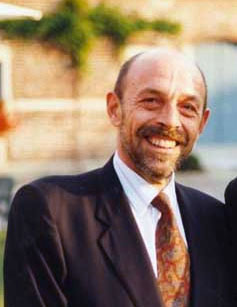Jacques-Philippe Leyens (1942-2017)
25.01.2017, by Sibylle Classen in announcement
Obituary by Olivier Corneille, Stéphanie Demoulin, Ginette Herman, Bernard Rimé, and Vincent Yzerbyt

Jacques-Philippe Leyens passed away this 24 January 2017. Born in 1942, Jacques-Philippe’s career as experimental social psychologist started in 1969 when he took his Ph.D. from the Catholic University of Louvain and left for the US for a two-year post-doc with Len Berkowitz at the University of Wisconsin, Madison.
Back in his alma mater, he went through all stages of the academic career until he officially retired in 2008. Throughout his prolific career, Jacques-Philippe communicated the passion for research and for teaching to generations of students and researchers. His work on aggression, on impression formation, on stereotyping and social cognition, and, more recently, on infra-humanization fascinated the larger scientific community but also a host of professionals and members of the general public who wanted to know more about psychological sciences in general and social psychology in particular.
Jacques-Philippe was not only a creative theorist and skilled experimenter but he was also an exceptional teacher and an incredible supervisor. Indeed, he trained an amazingly large number of graduate students, many of them becoming major players of the field. Very active at the level of international collaborations, he contributed to shape the discipline in several countries in Europe and beyond. A superbly gifted writer, his many books, some of them being best sellers, gave the opportunity to vast numbers of readers to get better acquainted with the social psychological mechanisms shaping the way human beings get to know and interact with each other. As a matter of fact, he was able to reach a wide audience, most notably in France and other French-speaking countries, always emphasizing the importance of scientific evidence in the public debate.
As a true social psychologist, a recurrent theme of his work is the all-too-common underestimation of the role of situational forces when it comes to account for human behavior and observers’ largely misplaced confidence in personality traits. In an early illustration of this stance, published in JPSP in 1975, he provided a brilliant demonstration of the impact of exposure to violent movies on teenagers’ aggressive behavior. In his later contributions, Jacques-Philippe focused on the causes for people’s tendency to rely on ethnocentrism and intolerance and he passionately tried to promote those factors leading to intergroup understanding and social harmony.
During his retirement years, he relentlessly continued disseminating the lessons of social psychology in a variety of monographs. In his latest essay, he combined his acute knowledge of social perception research with his longtime passion for mystery novels and detectives. A model of loyalty and integrity, Jacques-Philippe had also a deep concern for the collective well-being and served the larger community in a number of important ways.
He was the Dean of the Faculty of Psychology and Education from 1990 to 1995. After having been a student in the very first summer school of the EASP in 1967 in Leuven, he taught at the 1981 Aix-en-Provence summer school, and co-organized the 1989 San Sebastian and the 1998 Leuven/Louvain-la-Neuve summer schools.
From 1982 to 1985, he served as the Chief Editor of the European Journal of Social Psychology and, not surprisingly, was on the board of the most prominent scientific outlets in the discipline ever since. He also organized a stunning number of small group meetings as well as the 1992 joint EASP-SESP meeting. He even served two full-terms on the Executive Committee of the EASP, first as a treasurer, from 1978 to 1984, and then again in 1993, becoming its President from 1996 to 1999.
He was awarded several high profile distinctions at the national and international level. Perhaps the one honor that counted most in his eyes was the EASP Tajfel Award which he received in San Sebastian in 2002. In recent years, Jacques-Philippe has been fighting illness but this never made him forget about his friends, former students, and colleagues. A few weeks ago, he decided to stop counting on treatment and medication. He wanted to end his life with the lucid and courageous look that characterized him so well. He is survived by his beloved wife, Françoise, his two children, Gregory and Sophie, and their own large families. Jacques-Philippe was a great spirit, an authentic humanist, and a caring human being.
We will remember him fondly.